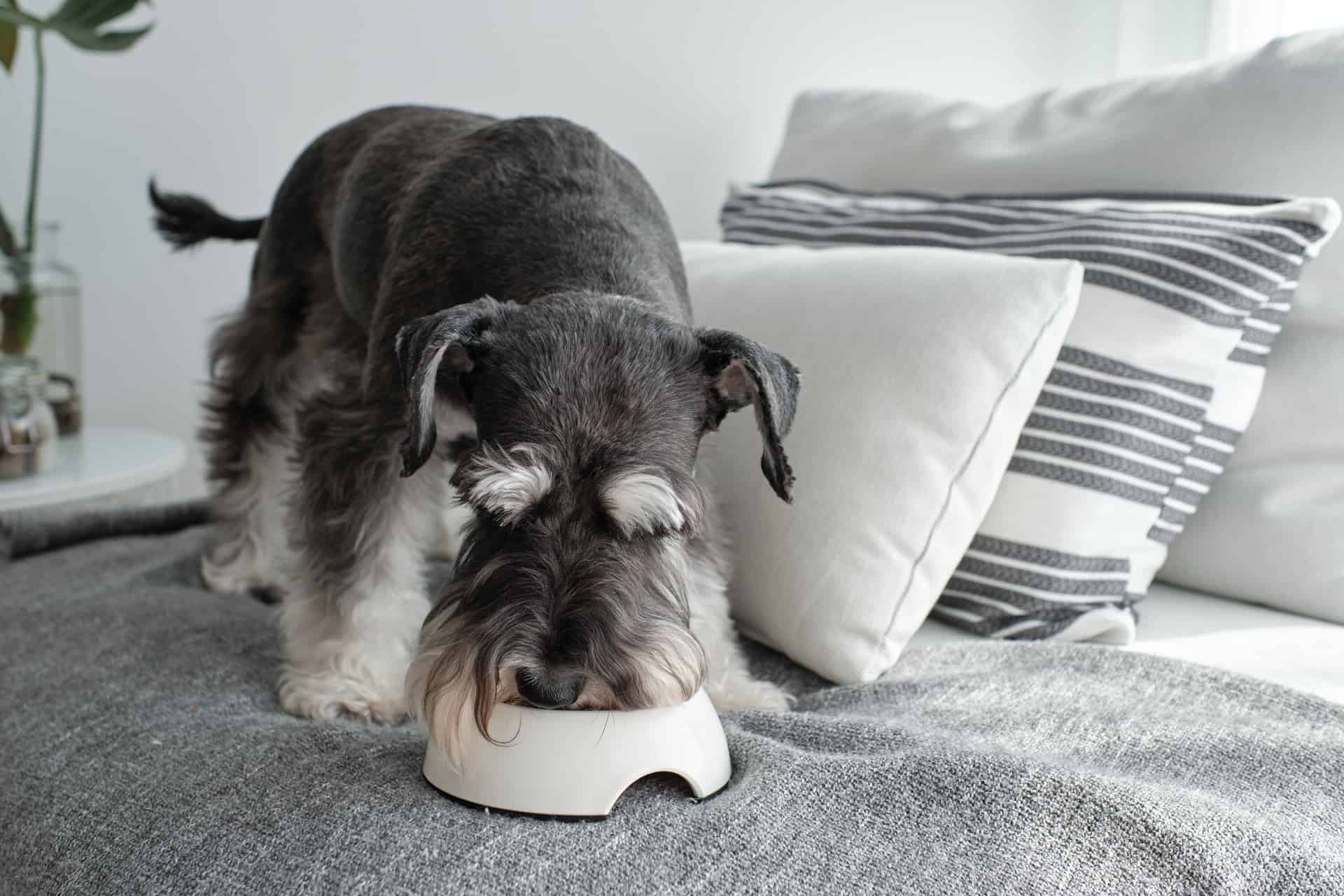How Nutrition Impacts Your Dog’s Health and Well-Being
Nutrition is essential for your pup’s overall wellness. It affects both their physical and mental health. The nutritional requirements vary based on age, breed, size and activity level. To keep them healthy, you must feed them a balanced diet with the right amounts of proteins, fats, carbs, vitamins and minerals.
Here’s how nutrition impacts your pup’s wellness:
- A nutritious diet aids in avoiding obesity and keeps them at a healthy weight, decreasing the chances of health issues like diabetes and heart disease.
- Omega-3 and omega-6 fatty acids in fish and plant oils nourish their coat and skin.
- High-quality proteins from meat, fish and eggs help maintain lean muscle mass and support growth and repair.
- Vitamins, minerals and antioxidants boost their immunity and protect against sickness.
It’s best to consult a vet to determine the correct type and amount of food for your pup’s needs.
Introduction to Dog Nutrition
Good nutrition is essential for keeping our furry friends healthy and active. Knowing what to feed your pooch is part of providing the best care. Let’s explore the basics of canine nutrition! We’ll discuss the types of food available, why balance and variety matter, and how to use nutritional guidelines for your pup’s wellbeing.
Role of nutrition in dog health
Nutrition is very important for a dog’s health and well-being. The right nutrients can help prevent health problems like obesity, dental issues and digestive issues. Here are 4 ways nutrition impacts your pup:
- Weight: A balanced diet helps your dog stay at a healthy weight and avoid possible health risks.
- Teeth: Nutrition can affect dental health. A good diet can prevent plaque and tooth decay.
- Digestion: Fibre and water in the diet can support digestion, reducing the chance of constipation, diarrhoea and other stomach issues.
- Immune System: Proper nutrition helps support the immune system, keeping them safe from illnesses and diseases.
It’s essential to give your pup a diet that is tailored to their needs. Talk to your vet to find out what’s best for your pup.
Nutrients required for dogs
As a pup-parent, making sure your pup gets the right nutrients is key for their health and happiness. Here are some must-haves for your pup’s diet:
- Protein – Animal-based proteins, like beef, chicken, and fish, are best for strong muscles, healthy fur, and skin.
- Carbs – Whole-grain carbs like brown rice, barley, and quinoa give your pup energy and keep their digestive system going strong.
- Vitamins and Minerals – Calcium, phosphorus, iron, and vitamins A, B, C, D, and E help with the immune system and overall health.
- Fats – High-quality fats, such as omega-3 and omega-6 fatty acids found in fish and flaxseed oil, give energy and keep skin and fur in top shape.
Remember: Get professional advice from your vet to make sure your pup is getting the right balance of nutrients.
Understanding Dog Food
Dogs need nutrition! It is essential to know what type of food is suitable for them. This article dives into the types of dog food and how they impact health. Let’s explore the different kinds and how they help keep your pup healthy and balanced.
Types of dog food available
Choosing the right type of dog food for your furry pal is essential for their optimal health. Here are the 4 main types of dog food available:
- Dry Dog Food: Kibble is the most common & affordable. Long shelf life, easy to store & no need to refrigerate after opening.
- Wet Dog Food: Also known as canned dog food, this is a moist & meaty option. It’s more expensive than dry food.
- Semi-Moist Dog Food: Least nutritious. Full of artificial preservatives, colors & flavours. Long shelf life & no need to refrigerate after opening.
- Homemade Dog Food: Most nutritious but also most expensive & time-consuming. Involves prepping fresh ingredients & making sure they get all their nutrients.
Consult your vet to choose the right food for your pup, based on their age, size, breed & dietary needs.
Comparing kibble, canned, and raw food options
Choosing the right food for your pup is key for their health. There are 3 types: kibble, canned and raw.
Kibble: It’s popular ’cause it’s cheap and has a long shelf life. But, it’s processed and full of fillers/preservatives.
Canned: It’s more expensive, but with higher-quality ingredients and less fillers/preservatives. But, it has a shorter shelf life and is harder to store.
Raw: Raw diet is getting more popular with uncooked whole foods like meat, bones, fruits and veggies. Natural nutrients, fewer chemicals/preservatives, but it’s time-consuming, risky and pricey.
Pick the type that fits your pup and lifestyle. Check with your vet first. Pro Tip: Read the ingredients on the packaging and avoid fillers/preservatives.
Homemade diet considerations
Considering homemade diet options for your pup? It’s essential to know how nutrition affects their wellbeing. Here are some points to consider:
- Proteins, fats, and carbs make up a healthy diet for pups.
- Consult with a vet or a nutritionist to ensure you provide a balanced and complete homemade diet.
- Vitamins, minerals, and antioxidants should be included in appropriate levels.
- Age, breed, activity level, and health conditions should be taken into account when selecting ingredients.
- Homemade diets can be a healthy option for some dogs, but not all. For some, specialized diets may be necessary due to medical conditions.
Pro Tip: Do research before switching to a homemade diet, and always consult with a vet or nutritionist before making changes.
Feeding Guidelines for Dogs
Nutrition is essential for good health, even in dogs. To guarantee your dog’s well-being and joy, you must give them the right kind of food in the right amount at the right time. This article will discuss the best feeding advice for your canine buddy’s diet.
Factors affecting dog’s feeding requirements
Several factors influence a pup’s feeding requirements. It’s important to know them to give the proper nutrition to keep their health and happiness. Here are some of the factors to pay attention to:
- Age: Puppies and seniors need different diets than adults. Usually, pups need more protein and calories for growth. Seniors need fewer calories and more fiber to stay at a good weight.
- Size: The size of your dog affects their food needs. Smaller dogs have faster metabolisms and require more calories per pound of body weight than bigger dogs.
- Activity level: Active dogs need more calories to power their energy needs than lazy dogs.
- Health status: Some health conditions need a special diet, like kidney disease, food sensitivities, allergies, and diabetes.
- Environment: Dogs living in colder climates or higher altitudes need more calories to stay warm.
It’s important to talk to a vet to find the best feeding guidelines for your pup based on their individual needs.
Determining correct portion sizes
What your dog should eat depends on a few things: age, weight, breed, and activity level. This is important for them to stay healthy and in shape.
To get the portion size right:
- Start with the instructions on the dog food package but change as needed.
- Use a measuring cup, not your eyes.
- Monitor your dog’s weight and adjust portions accordingly.
- Be aware of treats and leftovers – they can add too many calories.
- Get advice from your vet on the best nutrition plan.
Feeding Schedules for dogs
Creating a feeding plan for your pup is essential for their health and well-being. Here are some useful tips to remember:
- Age: Puppies need more frequent meals. Feed them 3-4 times a day. Adult dogs usually eat twice a day.
- Portion Control: Portion sizes should suit your dog’s breed, size, and activity level. Follow the instructions on the dog food packaging or ask your vet for help.
- Nutritional Content: Choose dog food that meets AAFCO standards and has the right nutrients for your pup’s age, size, and lifestyle.
- Consistency: Stick to the same feeding schedule to avoid digestive issues and help your pooch develop a healthy routine.
- Water: Ensure your pup always has access to fresh, clean water.
- Pro Tip: If your dog has any health issues, consult your vet for a specialized feeding plan.
Managing Common Health Issues with Nutrition
Nutrition is an easy and cost-effective way to keep your pup healthy. Diet can have a big effect on their wellbeing, as well as help with conditions they may have. Let’s look at the importance of nutrition and how to use it to manage health issues in your dog.
Balancing diets for dogs with allergies or intolerances
For dogs with allergies or intolerances, balancing diets requires thought about their nutritional needs and finding potential allergens. Here are some tips:
- Consult your vet to identify the allergen that is causing issues.
- Change to a single-source protein diet, using unique sources such as bison, venison, or duck to decrease the risk of an allergic reaction.
- Choose dog food that doesn’t have common allergens like corn, wheat, soy, and dairy.
- Supplement your pup’s diet with Omega-3 fatty acids, which can help with inflammation and allergens’ symptoms.
- Check your dog’s condition regularly and adjust the diet when needed. For severe allergies or intolerances, a prescription or homemade diet may be necessary.
Addressing obesity and overweight concerns
Obesity and overweight are big health worries for humans and dogs. Nutrition is key for managing these issues and for keeping dogs healthy. Here are 4 tips for addressing them:
- Portion Control: Measure the food given to your pup and give several small meals, not free-feeding.
- Quality Food: Feed a nutrient-dense diet to help your pooch feel full while eating fewer calories.
- Exercise: Regular activity helps manage weight, keeps muscle mass, and is healthy.
- Treats: Limit treats given and choose low-calorie, healthy ones.
By following these tips, your dog can keep a healthy weight, which is essential for their health.
Pro Tip: Ask a vet or canine nutritionist to create a diet and exercise plan for your furry mate.
Diet considerations for dogs with medical conditions
Nutrition is key when it comes to managing common canine health issues. Here’s what to consider for doggies with medical conditions:
- Diabetes: Low-carb, low-sugar diets help keep blood glucose levels in check. High protein and fiber diets can also regulate insulin sensitivity and aid in weight loss.
- Joint Pain: Omega-3 fatty acids reduce inflammation and encourage mobility. Diets with glucosamine and chondroitin further promote joint health.
- Allergies: Avoid common allergens like corn, wheat and soy. Novel protein diets or single-source proteins are effective for diagnosing and managing food allergies.
- Kidney Disease: Low-protein, phosphorus and sodium diets reduce the kidney’s workload. High-quality protein and antioxidants maintain muscle mass and slow down disease progression.
Pro Tip: Consult with your vet before changing your doggie’s diet. They know best when it comes to individual needs.
Choosing the Right Diet for Your Dog
Feeding your pup a balanced diet is key for their health. It should include proteins, fats, carbs, vitamins, and minerals. This can help them stay active and healthy. It may even lower the chance of health issues like obesity and diabetes. This article looks at why it’s important to pick the right diet for your pup.
Identifying the nutritional requirements of your dog
Choosing the right diet for your dog is essential. Consider their breed, age, activity level and how nutrition impacts their health. Here are some key nutritional requirements to keep in mind:
- Protein – Dogs need it for healthy skin and coat, muscle growth, and repair. The amount varies by breed & activity level.
- Fats – For energy, brain function, and nutrient absorption. Watch the amount & type to control weight.
- Carbohydrates – Not required, but a good source of energy & fiber. Too much can lead to weight gain.
- Vitamins & minerals – Essential for healthy bones, teeth & organs, plus immune support.
Consult your vet for specifics on your pup’s nutritional needs.
Choosing appropriate dog food based on age, breed, and activity level
Finding the perfect diet for your pup is key for their health & happiness. Factors such as age, breed & activity level are important when deciding which dog food to feed them. Here are a few tips:
- Age: Puppies need more protein & calories to grow. Senior dogs need lower-calorie diets to stay healthy.
- Breed: Different breeds have different needs. Big dogs need food with less fat to prevent joint issues. Smaller breeds can benefit from antioxidant & essential fatty acid-rich diets.
- Activity Level: A dog’s diet should match their lifestyle. Active pooches need more protein & fat for energy. Less active ones may gain weight if fed high-calorie food.
By considering these factors, you can pick the right dog food that meets your pup’s nutritional needs & helps them stay healthy. Pro tip: Consult your vet to decide the best diet based on their medical history & nutritional requirements.
Evaluating dog food labels and ingredients
Reading and assessing dog food labels and ingredients is key to ensure your pup gets the right nutrients. Here are tips to bear in mind:
- Look for high-quality proteins like chicken, beef, or fish as the first ingredient. Avoid by-products, fillers, and meat meals.
- Avoid artificial preservatives, colors, and flavors as they can harm your dog’s health.
- Check the guaranteed analysis to ensure it meets minimum nutritional requirements for your dog’s life stage and size.
- Any dietary needs/restrictions such as allergies or medical conditions?
By understanding food labels and ingredients, you can make a wise decision for your pup. They’ll live a healthy and happy life!
Conclusion: Staying on Top of Your Dog’s Nutritional Needs.
To finish, taking care of your pup’s nutrition is vital for its health. Good nourishment can stop sicknesses, add energy, make skin and coat healthy, and help a strong immune system.
When selecting food for your doggo, think about breed, age, size and how active it is. Also consider if it has any allergies or health problems. Look for high-grade food with real meat as the main ingredient and dodge artificial preservatives, fillers and by-products.
Plus, giving fresh water, healthy snacks and sometimes omega-3 fatty acids and probiotics can improve your pup’s diet.
By putting priority on your pup’s nutrition and making informed choices, you can help your furry companion live a long and healthy life.
Frequently Asked Questions
Q: What is the importance of nutrition in my dog’s overall health and well-being?
A: Nutrition plays a crucial role in supporting your dog’s immune system, maintaining healthy weight and promoting healthy coat and skin.
Q: What should be included in my dog’s diet to ensure proper nutrition?
A: Your dog’s diet should include high-quality protein, adequate fiber, essential vitamins and minerals, and a balanced blend of fatty acids.
Q: Is it safe to feed my dog a homemade diet?
A: While homemade diets can be a good option, it is important to consult with a veterinarian or canine nutritionist to ensure that the diet is balanced and meets all of your dog’s nutritional needs.
Q: What are some common signs of poor nutrition in dogs?
A: Some common signs include weight gain or loss, dull coat, lack of energy, and digestive issues such as diarrhea or vomiting.
Q: Can certain dog breeds have unique nutritional needs?
A: Yes, certain breeds may have specific needs based on factors such as size, activity level, and predisposition to certain health issues.
Q: How much should I feed my dog?
A: The amount of food your dog needs will depend on factors such as age, weight, and activity level. Your veterinarian can help determine the appropriate amount for your dog.







